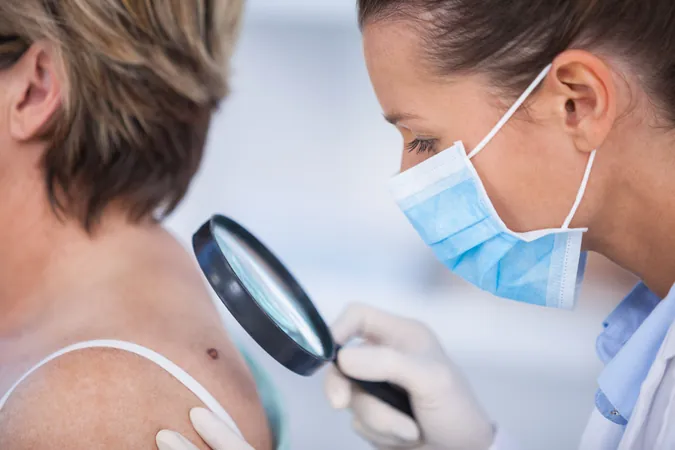
The COVID-19 Crisis: A Hidden Epidemic of Late Melanoma Diagnoses
2025-09-03
Author: Wei Ling
Understanding the Impact of COVID-19 on Melanoma Care
A recent comprehensive review shines a light on the significant disruption caused by the COVID-19 pandemic to melanoma diagnosis and treatment. This groundbreaking analysis reveals alarming trends in disease severity and diagnostic delays, highlighting one of the pandemic’s overlooked consequences.
The Unseen Consequences of Lockdowns
As the world grappled with COVID-19, routine medical appointments—especially for cancer screenings—plummeted. During April 2020, melanoma diagnoses fell by an astonishing 67%, echoing similar patterns in other cancers that saw screening rates drop by up to 90%. The statistics suggest that rather than a genuine decrease in cases, many potential diagnoses were simply delayed, setting the stage for more advanced disease.
Diving Into the Data
In a meticulous analysis of research conducted between 2015 and 2024, data was gathered from various sources including PubMed and the Cochrane Library. Out of 503 initial studies reviewed, 55 were ultimately included, mainly observational trials from countries like the UK, Canada, the USA, Australia, and Brazil. The data overwhelmingly focused on patients aged 58 to 69, predominantly male.
Staggering Findings
The findings are stark: the volume of melanoma cases diagnosed sharply decreased during the pandemic, affecting referrals and biopsies significantly. For instance, Australia witnessed a 48% drop in monthly referrals, while Canada experienced a 27% decline in biopsy rates. Calls to dermatologists in Italy dipped by as much as 37%. Consequently, late-stage detection became rampant, with Breslow thickness—an indicator of melanoma severity—increasing from an average of 1.1 mm before the pandemic to 1.8 mm during it.
A Call for Action in Healthcare
The consequences are grave; limited surgical interventions, attributed to resource constraints and patient apprehension, have resulted in a rise in patients presenting with inoperable tumors. These trends are consistent with observations in other cancer types, indicating a widespread crisis in cancer care during COVID-19.
Preparing for the Future
The study emphasizes the urgent need for improved preparedness in healthcare systems for potential future emergencies. The authors propose proactive strategies to reduce diagnostic delays, such as implementing teledermatology and artificial intelligence as part of cancer care. Enhanced public education on self-exams and preventative measures can empower patients to seek help sooner, regardless of circumstances.
Navigating a New Era of Cancer Care
As we emerge from the pandemic, it's crucial that healthcare providers refine their approaches to ensure patients receive timely diagnoses and care. The lessons learned from COVID-19 can pave the path to a more resilient healthcare system, where proactive measures and early intervention become the norms to combat the silent epidemic of late-stage melanoma.


 Brasil (PT)
Brasil (PT)
 Canada (EN)
Canada (EN)
 Chile (ES)
Chile (ES)
 Česko (CS)
Česko (CS)
 대한민국 (KO)
대한민국 (KO)
 España (ES)
España (ES)
 France (FR)
France (FR)
 Hong Kong (EN)
Hong Kong (EN)
 Italia (IT)
Italia (IT)
 日本 (JA)
日本 (JA)
 Magyarország (HU)
Magyarország (HU)
 Norge (NO)
Norge (NO)
 Polska (PL)
Polska (PL)
 Schweiz (DE)
Schweiz (DE)
 Singapore (EN)
Singapore (EN)
 Sverige (SV)
Sverige (SV)
 Suomi (FI)
Suomi (FI)
 Türkiye (TR)
Türkiye (TR)
 الإمارات العربية المتحدة (AR)
الإمارات العربية المتحدة (AR)